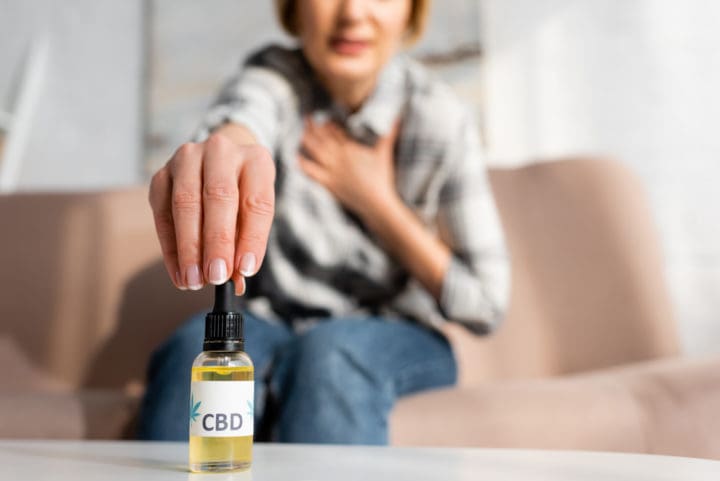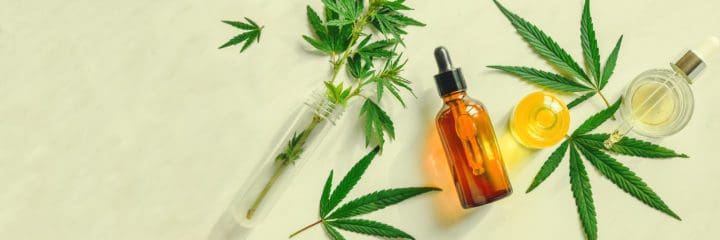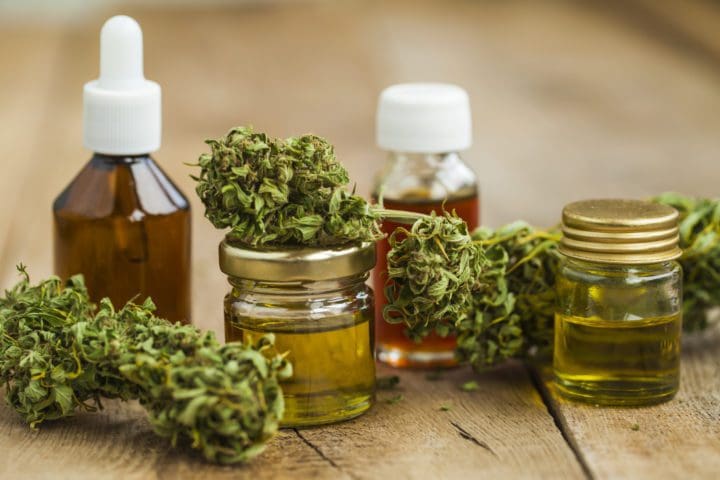Best CBD For Kids
Best CBD For Kids
Cannabidiol (CBD) is a chemical compound found naturally in cannabis and hemp plants. Cannabis and hemp plants both contain cannabinoids, a dense substance that has a drug-like effect on the body. CBD has recently gained popularity due to a growing number of research demonstrating the chemical compound's wide range of medical benefits. CBD is one of the cannabinoids that has been utilized as a natural supplement to treat a variety of disorders caused by deficiencies in the endocannabinoid system. CBD can bind with the endocannabinoid system in the body, which has anti-inflammatory characteristics, among other things. What is a proper cbd dose for kids? We hope that this Best CBD For Kids post inspires you.

Image from Depositphotos
Short History of CBD
Roger Adams discovered CBD in 1940 when he identified CBD and another cannabinoid, CBN, in hemp plants. He also proposed the existence of THC, responsible for cannabis's psychoactive effects. Organic chemist Raphael Mechoulam isolated THC in 1964. Today, CBD oil is sometimes prescribed preventatively for ADD or ADHD, primarily to manage symptoms and help with the disorder. As it's now considered a food supplement, it's important to regulate and monitor its intake carefully.
Effects of CBD
The effects of CBD on an individual are determined by a variety of factors, including dosage, absorption, quality, and whether the oil is an extract that solely contains the CBD molecule or a full-spectrum product that contains both CBD and THC. CBD suppresses the absorption of anandamide, which might make you feel relaxed. Anandamide is an endocannabinoid that aids in maintaining homeostasis, the body’s natural state of balance. It enhances emotions of well-being and aids in the control of pain and mental stress.
 Best CBD For Kids
Best CBD For Kids
To put their minds at ease, parents must take extra caution before administering any medication to their children. What type of information should they be aware of?
The Active Ingredient
Different products from various companies contain active ingredients in varying dosages, colors, compositions, flavors, and packaging. It's crucial to understand the active ingredients in products before using them, especially when combining multiple medications with the same components. Parents should also be cautious about unintentional overdosing.
For safety and reliability with natural products like non-GMO items or CBD oils containing CBD and THC, look for clear ingredient labeling on packaging and websites. While CBD oils contain both cannabinoids, the minimal THC level in hemp (0.3%) does not cause psychoactive effects. This transparency helps users make informed choices about their consumption.

Proper Dosage
According to a study, the ideal CBD dose for children is determined by their weight, metabolism, body chemistry, and intended effects. Some experts recommend starting with 0.5 mg of CBD per pound and taking it three times a day for pediatric users. Another research also found that dosages of up to 200 mg per day may be taken safely for up to 13 weeks. A prescription CBD medication such as Epidiolex has been used at greater doses under the supervision of a healthcare professional. CBD isolates, a pure form of CBD, are available in a liquid form that is colorless, odorless, and free of THC, making it easier to include in children’s food and beverages without the off-putting smell or taste.
Source of Active Ingredient
Hemp plants absorb nutrients and contaminants from their environment. When grown in healthy soil, hemp thrives, extracting beneficial elements for robust growth and high CBD yield. Conversely, in contaminated soil, hemp absorbs pollutants, leading to inferior quality. Understanding hemp sourcing can help mitigate potential health risks for consumers, including children.
https://divinelifestyle.com/what-are-the-most-popular-cbd-products/
Extraction Method
To minimize manufacturing costs and offer inexpensive CBD oil, some producers employ harmful solvents like propane and butane during extraction. The hazardous residue in such goods is something that should be avoided. Methods using ethanol and CO2 both produce clean and powerful extracts without leaving any toxic compounds behind. The cannabinoids and other hemp chemicals are extracted by soaking the high-CBD bud in high-proof alcohol like ethanol. CBD medicines are made with ethanol making it safe for consumption.
Can using CBD help relieve stress?
Potential Side Effects
Even though CBD is normally well tolerated, it might cause side effects such as dry mouth, diarrhea, decreased appetite, weariness, and exhaustion. CBD may also interfere with other drugs a person is taking, such as blood thinners. If one is uninformed of the unpredictability of the quality and amount of CBD in prescriptions, one's health could be jeopardized. Hence, it is highly recommended especially for parents to discuss potential side effects with a healthcare professional.
Many people believe that the rise in interest in herbal cannabis products is a side effect of the opiate problem. Public perception of medicinal cannabis suggests that this plant-based treatment is viewed as similar to an herbal drug supplement used to improve overall wellness or manage symptoms of certain diseases. Most of the products in the market promise to relieve pain and anxiety but it's unclear whether they truly contain the quantity of CBD they claim. Thus, it is critical to purchase products that will meet your child's needs. Parents should conduct thorough research and consult a healthcare professional to minimize health risks, especially with children. We hope that this CBD For Kids post inspires you. Happy shopping!

4 Reasons CBD Has Become So Popular








Pingback: Best Way to Use CBD Cannabidiol health solutions
Pingback: CBD and Exercise Cannabidiol Oil Divine Lifestyle